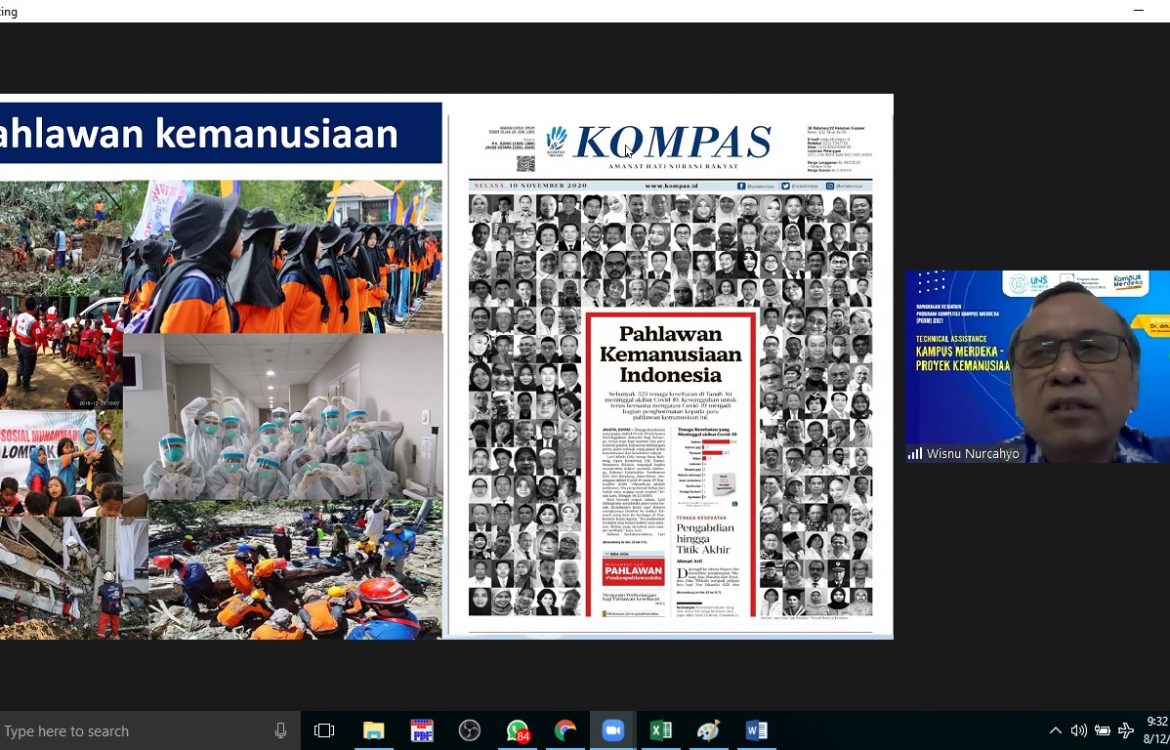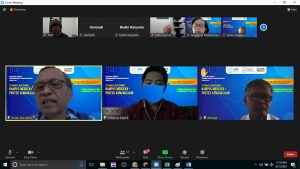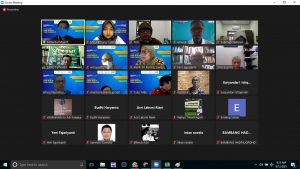
Humanitarian Project Trains Students to Have Social Sensitivity
The Humanitarian Project is a part of the Kampus Merdeka program. Students with a young spirit, scientific competencies, and interests can become the “foot soldiers” in humanitarian and other development projects both in Indonesia and abroad. A humanitarian project aims to prepare excellent students who uphold humanity in carrying out their duties based on religion, morals, and ethics. The project also trains students to have social sensitivity to investigate and explore existing problems at the same time providing solutions according to their respective interests and expertise.
This message was conveyed by Dr. drh. Raden Wisnu Nurcahyo, member of the Dissemination Lecture Team for MBKM Dikti Program, in the Technical Assistance Program for the Kampus Merdeka-Humanity Project organized by the Management Study Program, Faculty of Economics and Business (FEB) Universitas Sebelas Maret (UNS), Thursday, August 12, 2021.
Furthermore, he explains that for the implementation of the program, the study programs or faculties can establish agreements with partners in the form of a Memorandum of Understanding (MoU/SPK). This collaboration can be established with domestic institutions such as with the Regional Government, PMI, BPBD, BNPB, sub-districts, religious organizations, and others, or foreign institutions such as UNESCO, UNICEF, WHO, UNOCHA, UNHCR, and so on.
In order for the program to run well, program ambassadors are needed, namely lecturers from each study program who are responsible for providing assistance, supervision, assessment, and evaluation of humanitarian project activities carried out by students. Lecturers together with partner institutions compile a logbook form.
 In the next stage, study programs need to make technical guidelines for learning activities through humanitarian projects. It is necessary to form a strong task force to support the implementation, final evaluations, and equalization of student humanitarian project activities into relevant subjects. “Lecturers can help in identifying activities, finding program partners, assisting students until the final evaluation, equalizing humanitarian activities into relevant courses according to the faculty Semester Credit, and encourage sustainability of the program,” Wisnu said.
In the next stage, study programs need to make technical guidelines for learning activities through humanitarian projects. It is necessary to form a strong task force to support the implementation, final evaluations, and equalization of student humanitarian project activities into relevant subjects. “Lecturers can help in identifying activities, finding program partners, assisting students until the final evaluation, equalizing humanitarian activities into relevant courses according to the faculty Semester Credit, and encourage sustainability of the program,” Wisnu said.
All activities must be reported by the study program to the Faculty, then the Faculty to the University MBKM task force. Finally, the university should report the results of learning activities to the Directorate General of Higher Education through the Higher Education Database.
For curriculum equalization in humanitarian projects, there are several methods available, including free forms, which are formulated in hard skills, problem-solving methods according to graduate learning outcomes, technical adjustments formulation, and synthesizing capabilities. Students’ soft skills achievement includes communication skills, cooperation, leadership, hard work, and creativity. Equalization can also create a structured form, structured according to the curriculum taken by students. Credits are stated in the form of equivalent courses. Actually, the easiest method to do this is to combine free form and structure form.
Students can collect data when participating in a humanitarian project for their thesis, for example, preparing a budget and cost plan for a humanitarian project, managing logistics, networking with partners, and many others. In the event, which was attended mostly by lecturers, Dr. Wisnu also explained about scientific research grant schemes, including lecturers’ independent research grants, entrepreneurship research, rural research, and humanitarian activities grants.
Humanitarian activity grants aim to produce designs or models related to humanitarian activities management that are useful in disaster relief handling, producing beneficial science and technology, equipment or policies according to the type of disaster. This grant is also useful in combining each lecturer’s expertise in research activities to learning programs in a humanitarian project and disseminating the humanitarian research results.
The focus of scientific research for humanitarian activities includes scientific research on Covid 19 prevention, scientific research on technology and geological disaster management, scientific research on technology and hydrometeorological disaster management, scientific research on technology and disaster management of land/forest fires, scientific research on technology and environmental management, and scientific research on disaster-related policy or governance. (Humas FEB)

